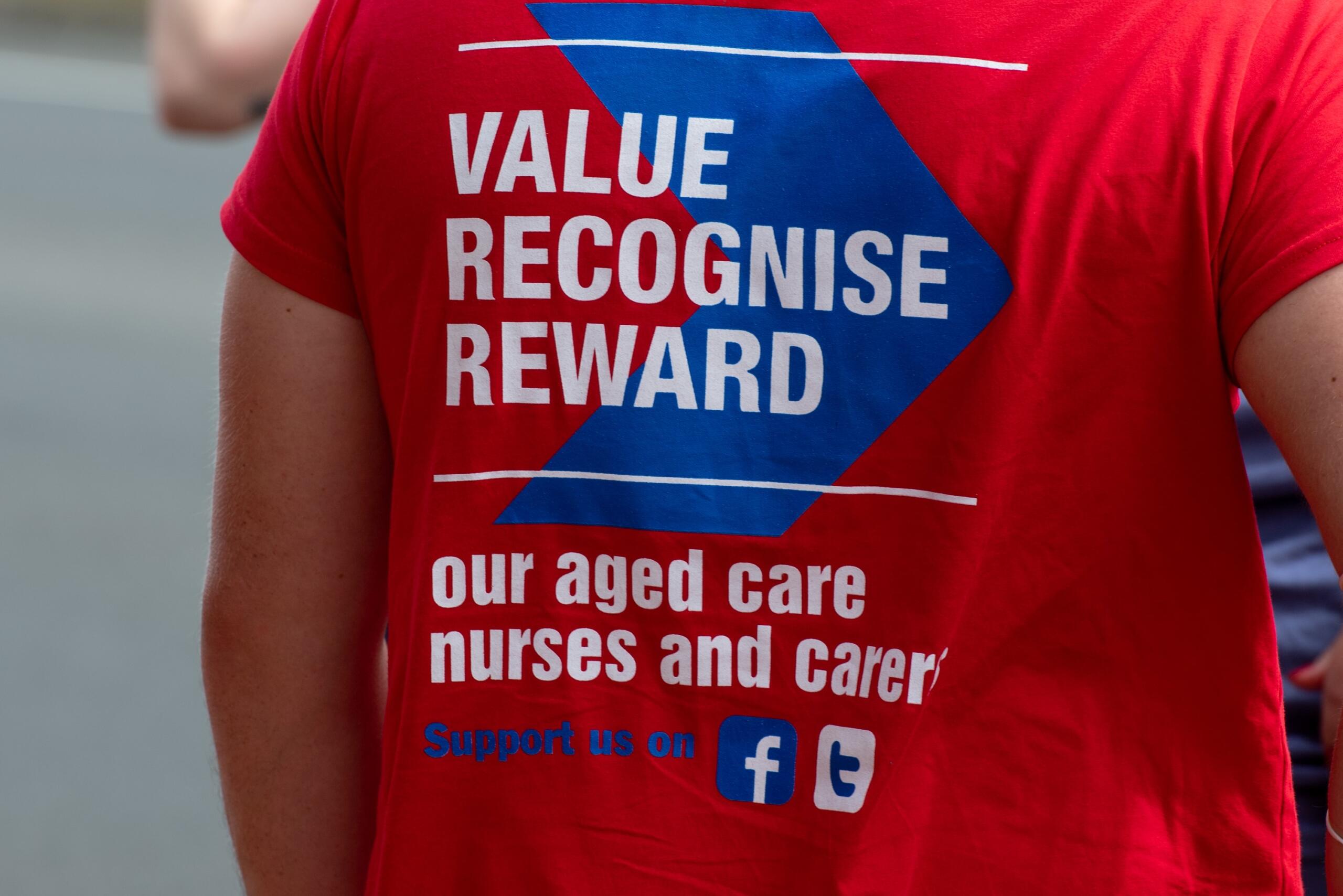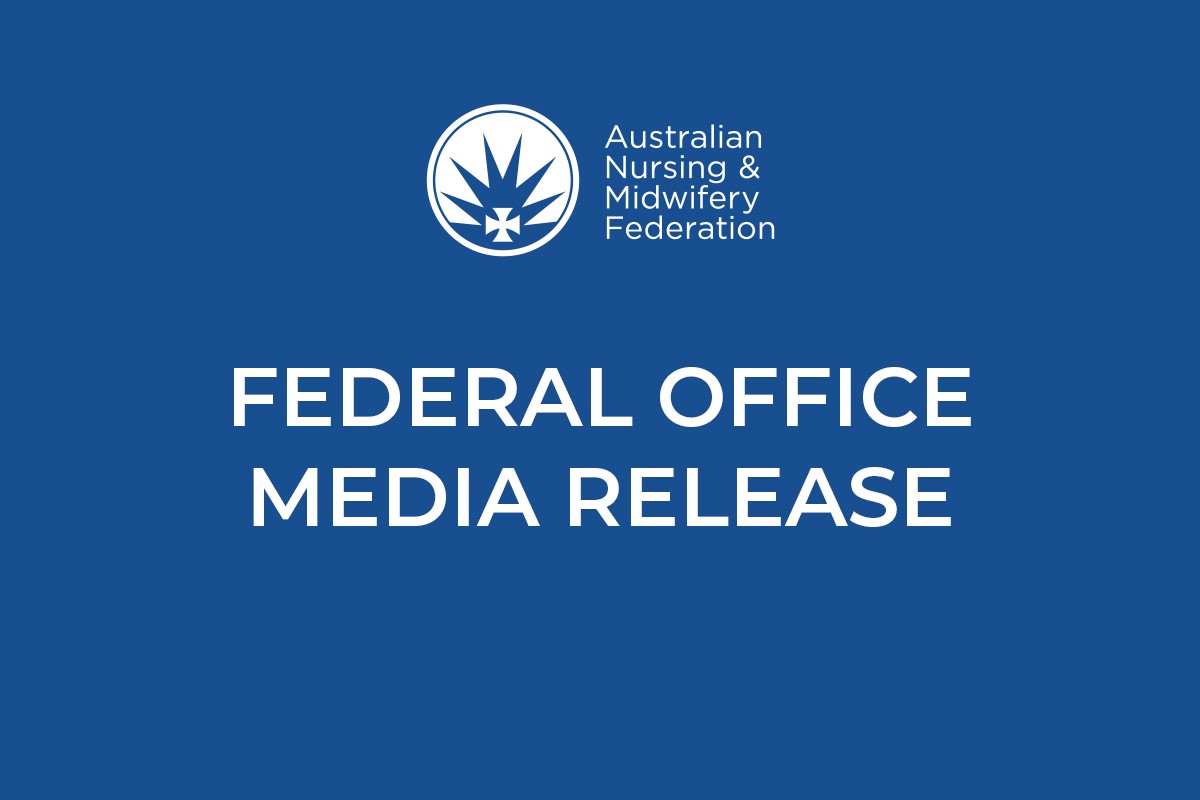
Aged Care Minister Anika Wells introducing the aged care bills. AAP/ LUKAS COCH
The Federal Albanese Government has introduced ‘historic’ new draft legislation to implement the aged care royal commission’s most critical staffing recommendations.
The Aged Care Amendment (Implementing Care Reform) Bill 2022 was introduced into parliament on Wednesday 27 July 2022, and delivers on the Albanese Government’s aged care election commitments.
Federal Aged Care Minister Anika Wells, in her second reading speech, said the bill would ‘put nurses back into nursing homes’ and ‘ensure carers have more time to care’.
The Bill will legislate for a registered nurse to be onsite in every aged care facility 24/7 (87 per cent of Victorian private aged care EBAs already have this), and that residents receive a mandated minimum amount of care time every day. It also addresses funding transparency and accountability, and capping of home care fees.
Schedule 1 of the Bill responds to the royal commission final report’s Recommendation 86: Minimum staff time standard for aged care, and requires residential care providers to ensure that at least one registered nurse is on site and on duty at all times (24 hours a day, 7 days a week) at each residential facility they operate from 1 July 2023.
It will also mandate 200 care minutes per resident per day to be provided by 1 October 2023, and 215 care minutes per day by 1 October 2024.
Schedule 2 of the Bill introduces a power to set a cap on the amount that home care providers are able to charge for administration and management services from 1 January 2023, while removing their ability to charge exit amounts.
Schedule 3 of the Bill responds to the royal commission final report’s Recommendation 88: Legislative amendments to improve provider governance. This measure is designed to ensure that aged care providers must be transparent about certain financial information, such as how much money is spent on care, nursing, food, maintenance, cleaning, administration and profits.
The Albanese Government also introduced the Aged Care and Other Legislation Amendment (Royal Commission Response) Bill 2022 on 27 July and six days later it was the first bill of the new parliament to pass both houses. It is the new government’s amended version of the former federal government’s Royal Commission Response No 2 Bill. ANMF is pleased that the most concerning schedule from that Bill, worker screening, has been removed.
As part of her second reading speech Minister Wells tabled 23 reports, inquiries, studies, committee reports detailing the crisis in aged care that had been ignored over the last decade.
ANMF Federal Secretary Annie Butler described the start of the new parliamentary term as a historic day for ANMF members.
‘While implementation of these crucial reforms will take some time and will need to be phased in over the next two years, today marks the first real step towards actually fixing the aged care sector.
‘After years of campaigning, ANMF members and aged care workers across the country will finally see results – the introduction of national safe staffing laws.’
The reforms will ensure residents get the care they need, Ms Butler added.
‘The ANMF also welcomes the introduction of additional requirements on aged care providers to reveal how much they actually spend on care, nursing, food, maintenance, cleaning, administration and their profits, which will bring much-needed accountability and transparency on the billions of taxpayer funds provided to nursing home operators.’
Aged Care Ministers Mark Butler and Anika Wells have committed to fortnightly meetings with the Federal ANMF to ensure effective implementation of these critical reforms.
Registration of personal care workers
A measure to register personal care workers was not included in the Aged Care and Other Legislation Amendment (Royal Commission Response) Bill 2022. ANMF understands separate legislation will be drafted for this purpose.
The aged care royal commission recommendation 77 said the Australian Government should establish a national registration scheme for personal care workers with a minimum qualification, ongoing training, English language proficiency, criminal history and code of conduct requirements.
The aged care royal commissioners Tony Pagone and Lynell Briggs handed down differing recommendations for how to achieve a national registration scheme.
Commissioner Briggs recommended that the Australian Health Practitioner Regulation Agency (AHPRA) should establish a national board and a registration scheme for personal care workers.
In our national submission to the aged care royal commission ANMF advocated for a professional framework, greater education opportunities and career pathways for personal care workers. ANMF also argued that transition support arrangements would be needed for carers who did not meet the minimum qualification requirements.
In his evidence before the royal commission in 2019 ANMF Assistant Secretary Paul Gilbert said registration for personal care workers would contribute to ANMF’s vision of an aged care workforce that was well paid, proud and had the trust and confidence of the community.
Mr Gilbert also told the commission that paying for registration and meeting a minimum qualification would be a barrier for personal care workers given the low wages. He said the federal government should meet those costs rather than individuals. The ANMF and HSU work value case to bring a 25% wage increase for aged care workers continues before the Fair Work Commission.
ANMF will continue to advocate that AHPRA be required to extend its regulatory oversight to personal care workers.




